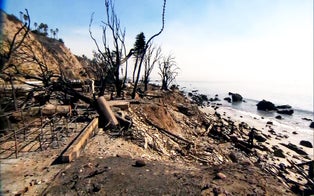Coast Guard Officer Matt Vaughn spoke to INSIDE EDITION to provide tips on what to take with you to sea.
What should you do if you face an emergency at sea? According to the Coast Guard, certain items can help save your life.
Coast Guard Officer Matt Vaughn spoke to INSIDE EDITION to provide potentially life-saving tips.
Every person on a boat must legally have a life jacket and children under 13 are required to wear them at all times, he said.
Flares should also be carried on the boat: three night flares and three day flares. Once ignited, they can be seen from miles away.
Read: Life Vests Found in Search For Boys Who Vanished on Fishing Trip
"That's an internationally recognized distress signal," Vaughn said.
Passengers should also carry a strobe light which can be worn on the body if you end up in the water.
"When you're in the water, you want to have it at the highest point of your person so when a boat comes by, it can see you," he said.
A whistle should also be carried on board to attract attention.
And technology can help too. A location device called an EPIRB can be attached to your vessel.
Read: NFL Legend Joe Namath Joins Search for Teens Missing At Sea: 'We Just Keep on Praying'
Vaughn explained: "If you were to capsize or sink, that will float free and it will signal to a satellite your location."
The tips come in light of tragic news that two teenage boys vanished while on a fishing trip off Jupiter, Florida two weeks ago.
The boys, who were experienced at sea, have not been found but earlier this week searchers found two life jackets that could belong to them.
Watch Below: Could Missing Teens Survive by Clinging to a Cooler?




